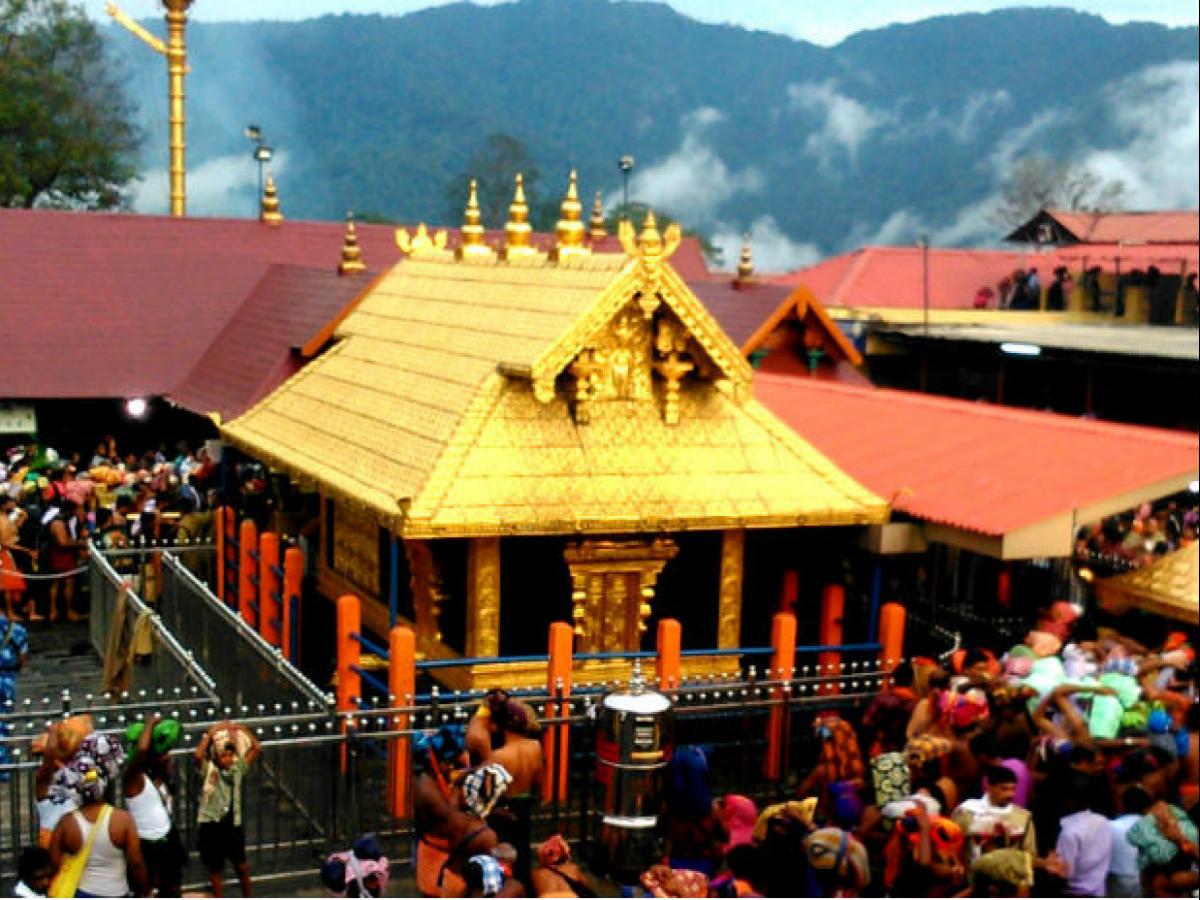Latest News
Sabarimala case : Entry of women in temple

We live in a democratic country that has provided us with an ample amount of rights and liberty. but there are some areas where we are bound by our customs. This has created despair among people which ultimately led to a breach of our constitutional rights. Such was the case of temple in Kerala named Sabarimala where women in the age from 10 to 50 were banned to enter in to temple. The temple rules have violated the Right to equality and Right to worship.
Women took stand:
A group of five women lawyers has challenged Rule 3(b) of the Kerala Hindu Places of Public Worship (Authorisation of Entry) Rules, 1965, which authorizes restriction on women "of menstruating age". They moved the apex court after the Kerala HC upheld the centuries-old restriction, and ruled that only the "tantri (priest)" was empowered to decide on traditions.
Senior Advocate Indira Jai Singh, who represented the petitioners, said the restrictions went against Articles 14, 15, and 17 of the Constitution. She argued that the custom is discriminatory in nature and stigmatised women and that women should be allowed to pray at the place of their choice.
History of the Sabarimala Case:
- In the year 1990, A petition was filed in the Kerala High Court seeking a ban on entry of women inside the Sabarimala temple. The verdict of so was delivered in 1991 to upheld the restriction of women in the holy shrine of Lord Ayyappa.
- In the year 2006, a petition was filed in the Supreme Court by the Indian Young Lawyers Association seeking entry of women between 10 to 50 years. But the matter was referred to 3 bench judge in 2008.
- In the year April 2016, The United Democratic Front government of Kerala led by Chief Minister Omen Chandy informed the SC that it is bound to protect the right to practice the religion of Sabarimala devotees.
- The Kerala Government being supportive was in favour to allow the women to enter into to temple. Advocate Jaideep Gupta, representing the state government, said it would support the entry of women of all ages to the temple.
- In the year 2017, the supreme court referred the case to Constitutional bench of 5 judges.
Arguments against women's entry into the temple were presented as:
- Allowing menstruating women to enter the temple would affect the deity's celibacy and austerity which is the unique nature of Lord Ayyappa.
- Temples, managed by trusts, are public places. The Sabarimala Shrine's trust representatives asserted that it has its traditions and customs that need to be respected, just like other public places which have their own rules.
- Clause (2) of Article 25 of the Constitution of India which provides access to public Hindu religious institutions to all classes and sections of the society applies only to societal reforms, not religious matters which are covered under Article 26 of the Constitution. Article 26 (b) gives the right to every religious group to manage their religious affairs.
- The Guwahati HC in Raju Prasad Sharma v. the State of Assam1, ruled that the religious customs which are protected under Article 25 and 26 are resistant from the dispute under other provisions of Part III of the constitution.
- Rule 3(b) of the Kerala Hindu Places of Public Worship (Authorization of Entry) Rules, 1965 restricts women by prohibiting them from entering the Sabarimala temple premises. The above arguments are presented and supported in a way to consider the customs and traditions of religions supreme than anything else. And, that these should be followed and protected at any cost.
Supreme court verdict on the matter.
On 28 September 2018, A five-judge Constitutional bench of the Hon'ble SC ruled 4:1 in favour of allowing women of all ages to enter the temple.
It found the practice prejudicial in essence and that it violates women's right to practice religion. It also ruled that the devotees of Lord Ayyappa do not constitute a separate religious denomination as they do not have any common religious tenets specific and different to themselves other than those which are customary to the Hindu religion.
Section 3 is a non-obstante provision which explicitly lays down that all places of public worship shall be open to all classes and sections of Hindus, women being one of them, irrespective of any custom or tradition to the contrary.
Any explication to the contrary will change the purpose of the 1965 Act and the fundamental right of such women as they are qualified to practice religion under Section 25(1) of the Constitution of India.
A claim for the exclusion of women from religious worship, even if it be founded in religious text, is subordinate to the constitutional values of liberty, dignity and equality. Exclusionary practices are contrary to constitutional morality.
In any event, the practice of excluding women from the temple at Sabarimala is not an essential religious practice. The Court must decline to grant constitutional legitimacy to practices which derogate from the dignity of women and to their entitlement to an equal citizenship;
The social exclusion of women, based on menstrual status, is a form of untouchability which is an anathema to constitutional values. Notions of “purity and pollution”, which stigmatize individuals, have no place in a constitutional order.
For the Supreme Court, the Sabarimala trial was a test of constitutional morality. The judgment was an act of social scheme and constructed on the hypothesis that faith and custom must quadrate to the diktats of modernity. It has mechanically directed radical change on a Hindu culture that is both eternal and constantly adaptive. Thus, on the one hand, it manifests the conquest of women's rights towards equality with men and on the other, it establishes the predominance of Constitutional morality over customary laws, rituals, and traditions.
Document:



































































































